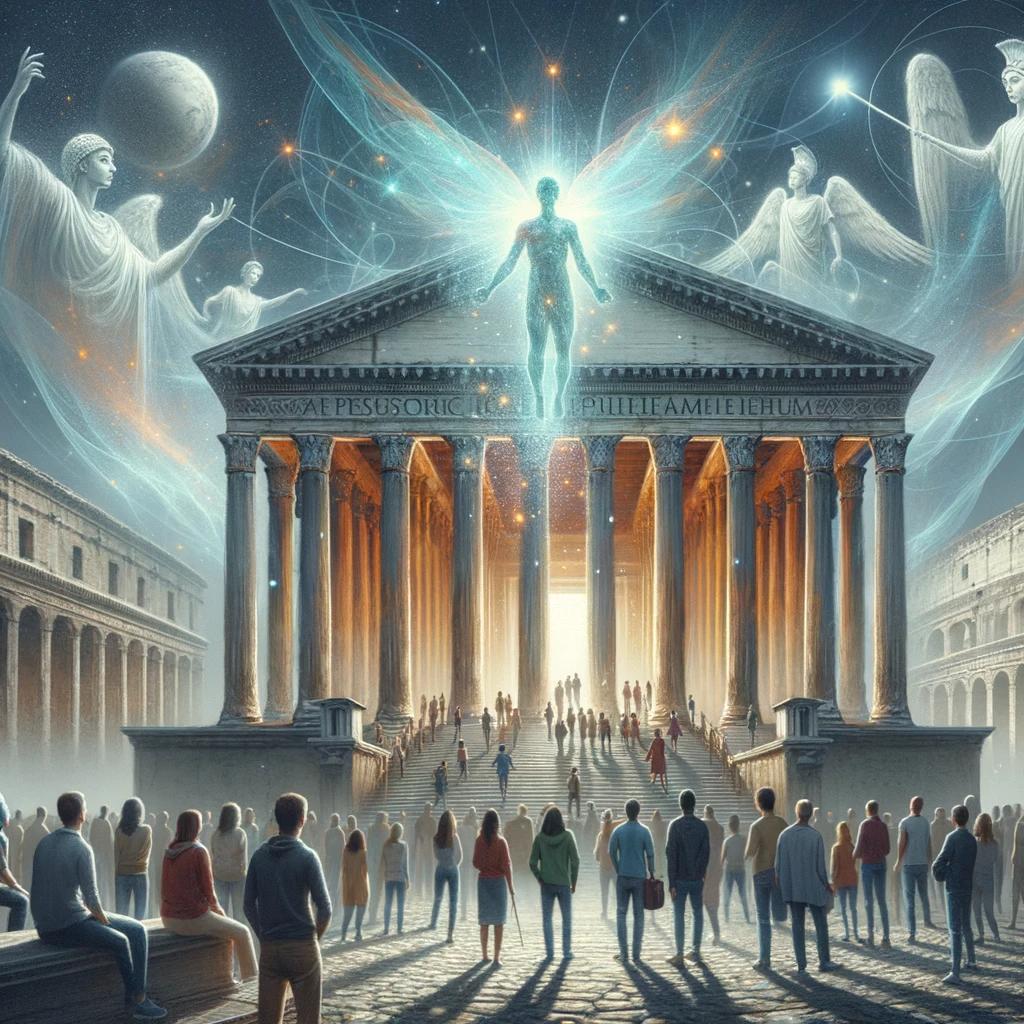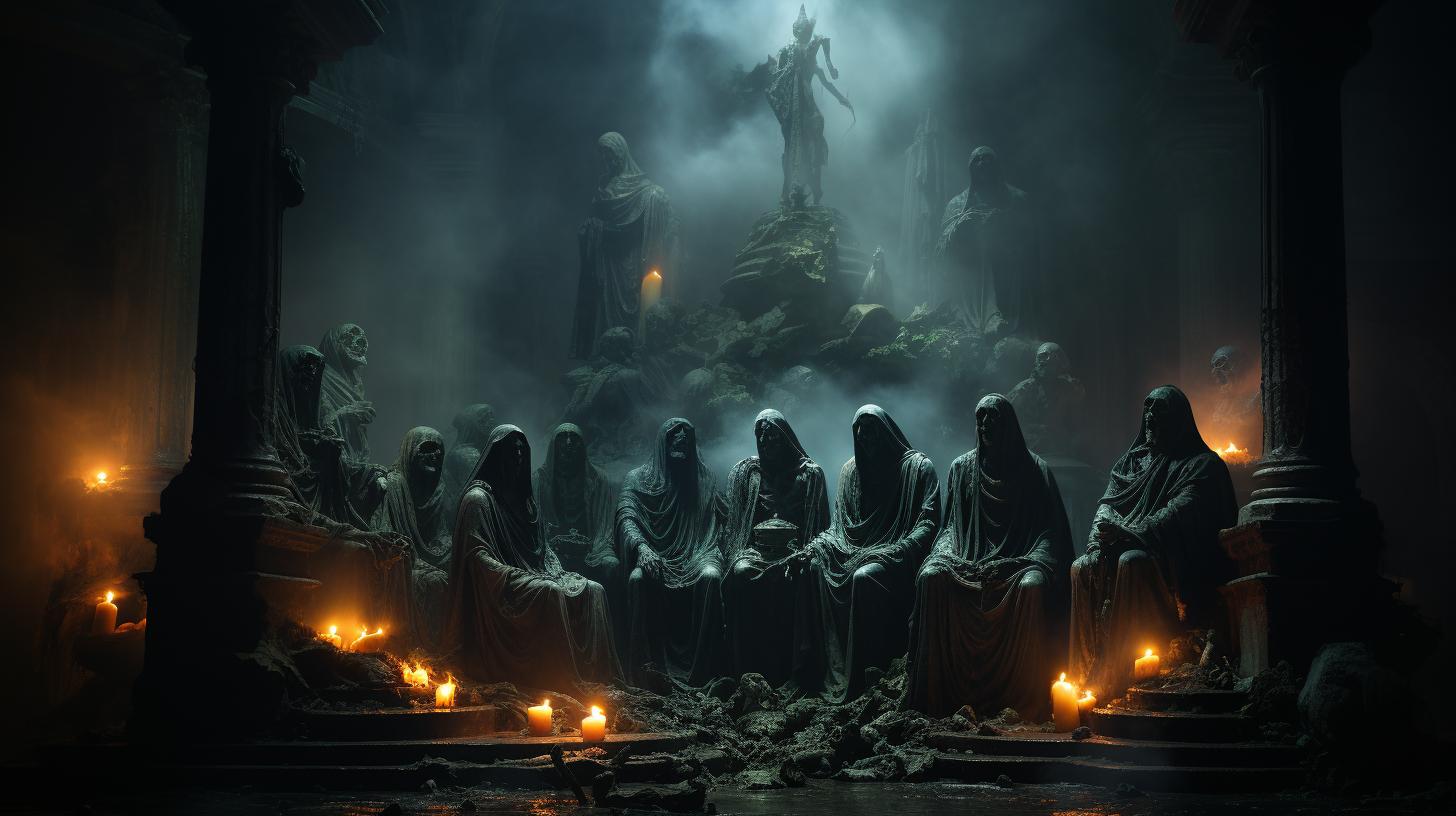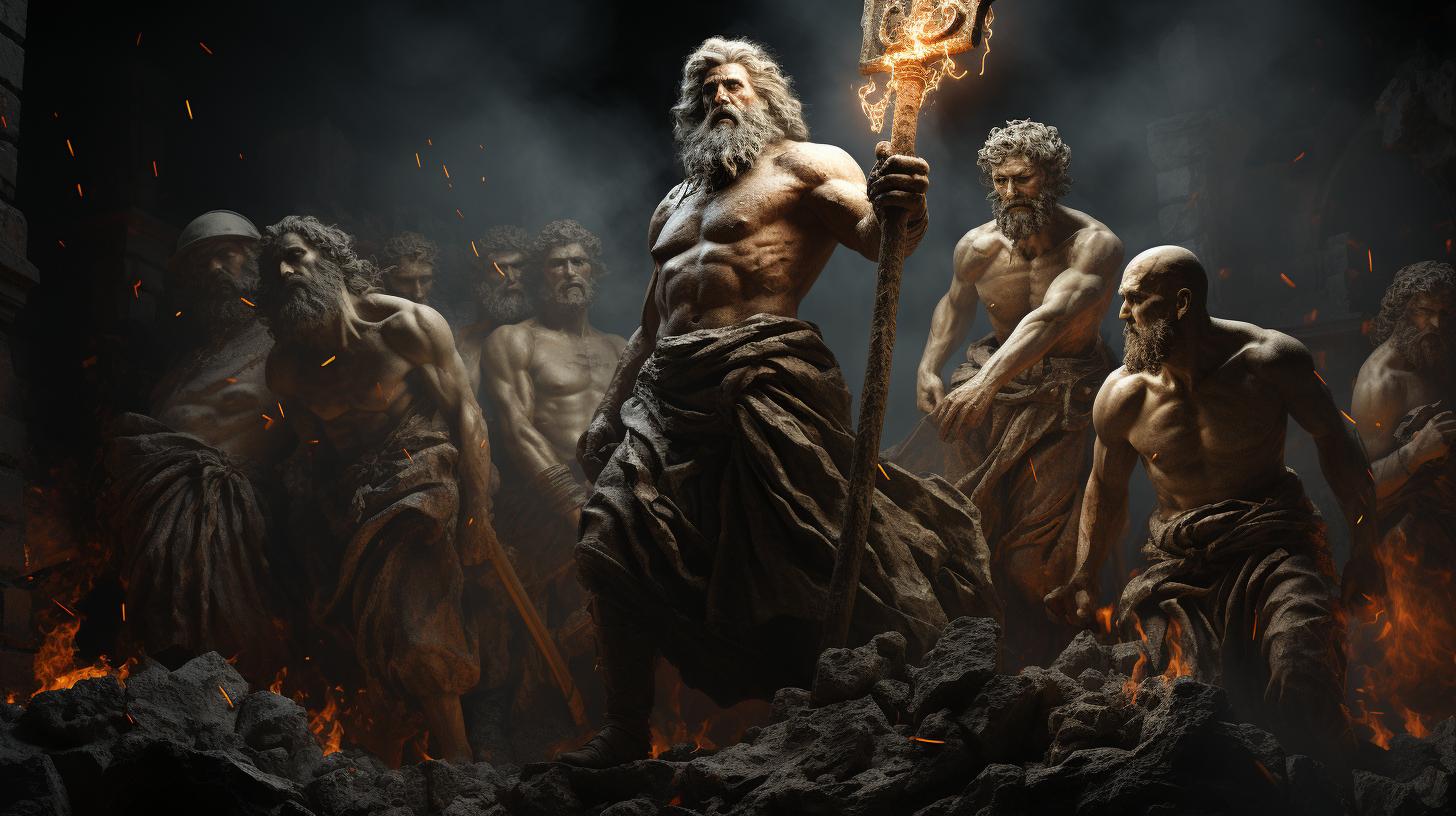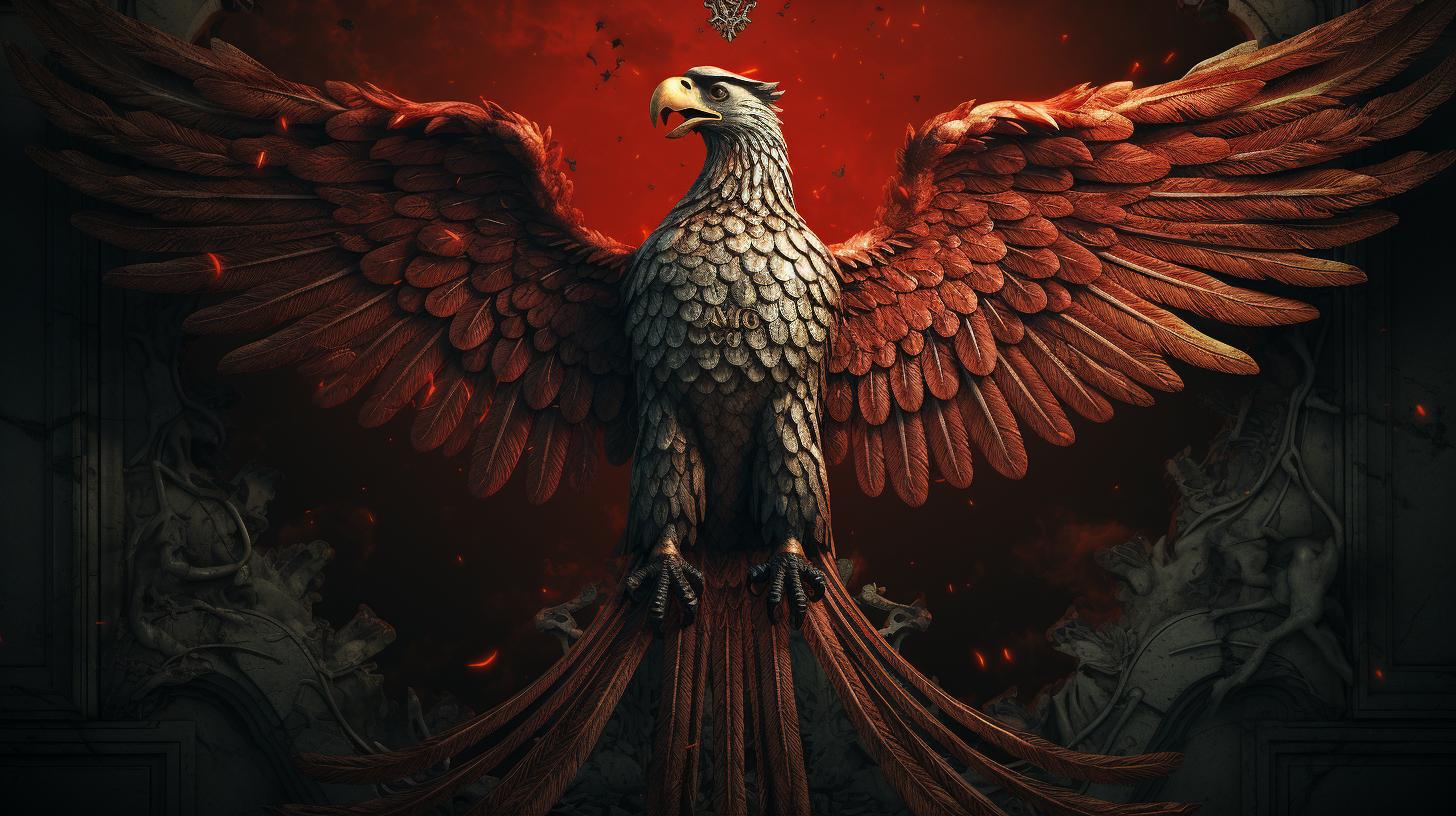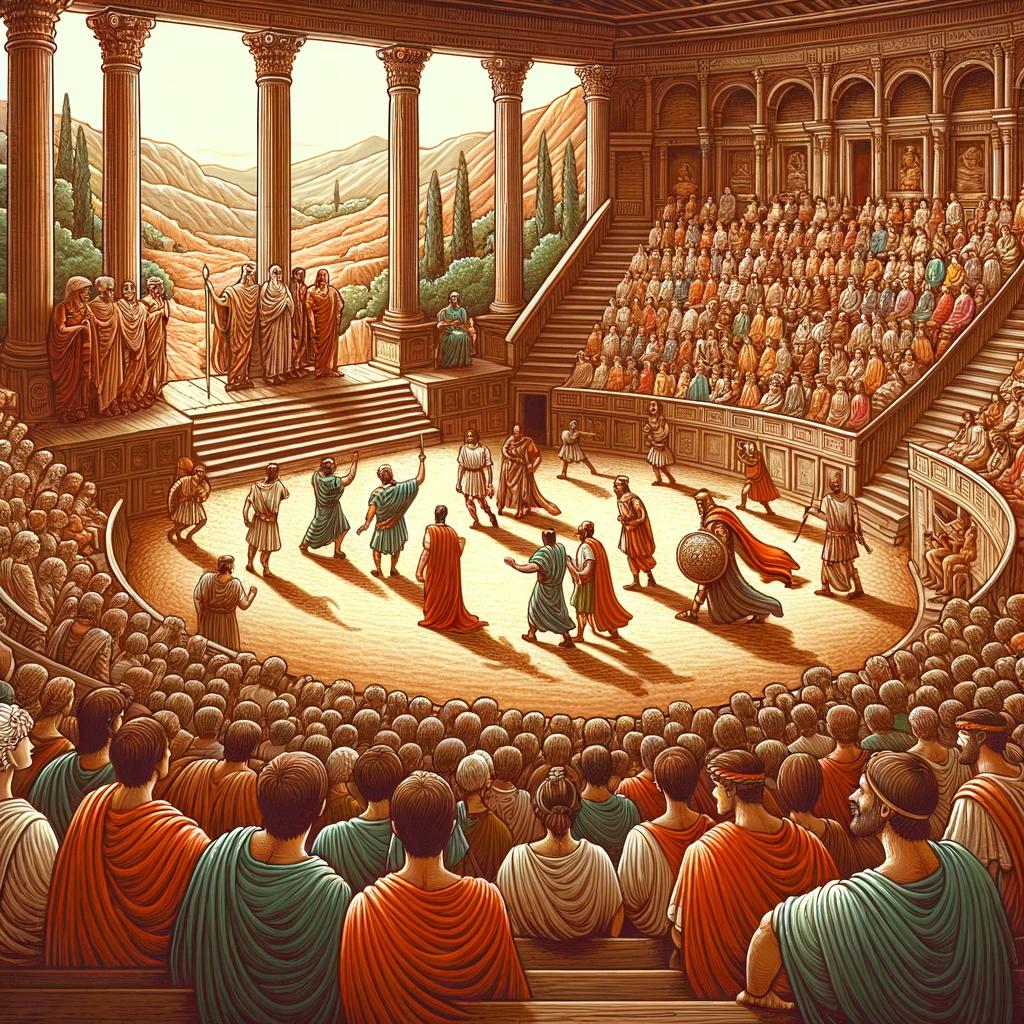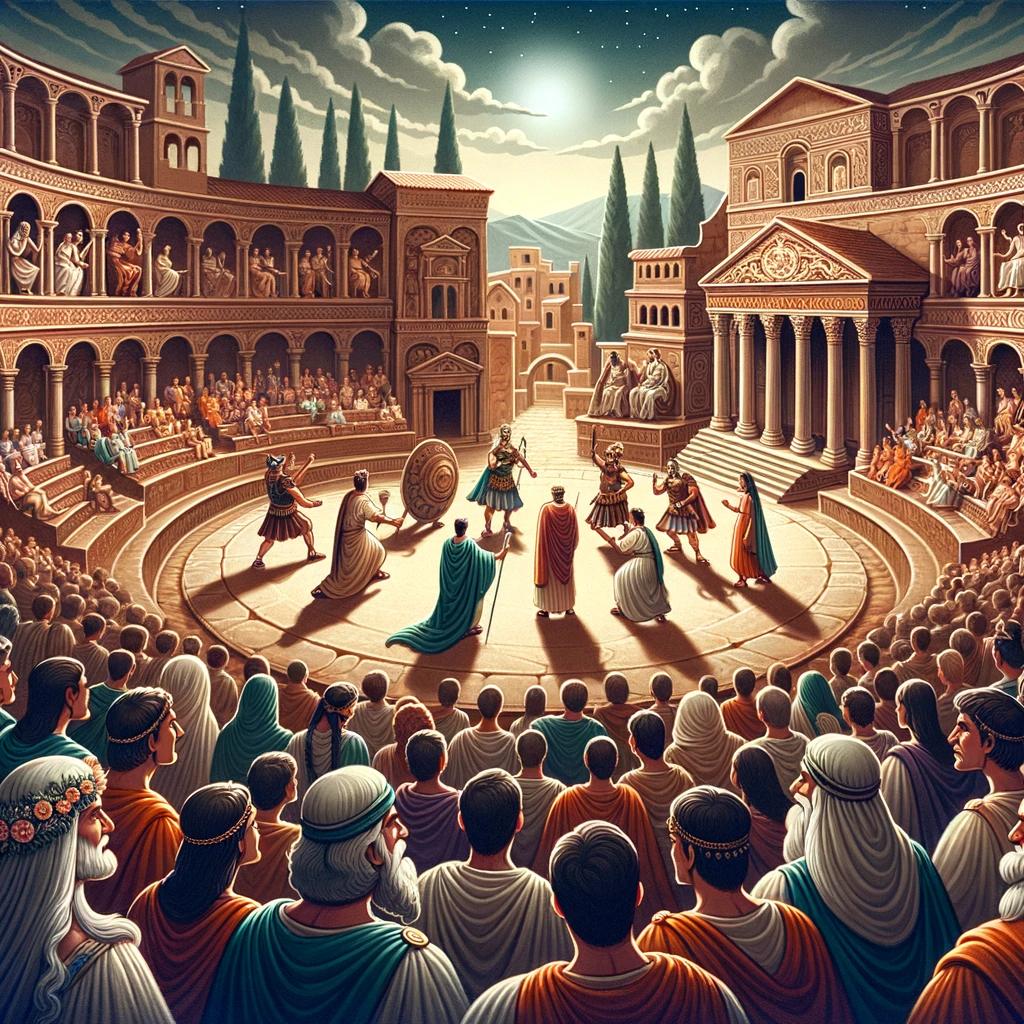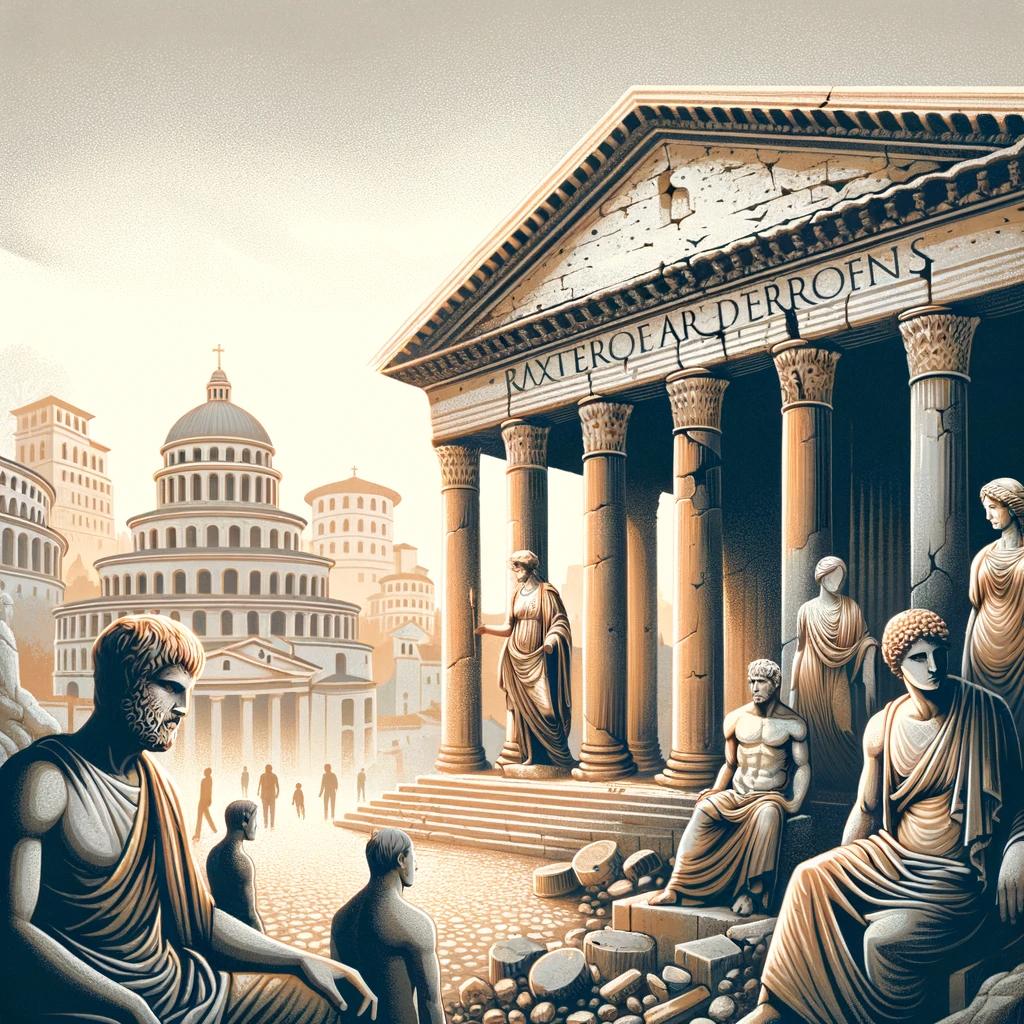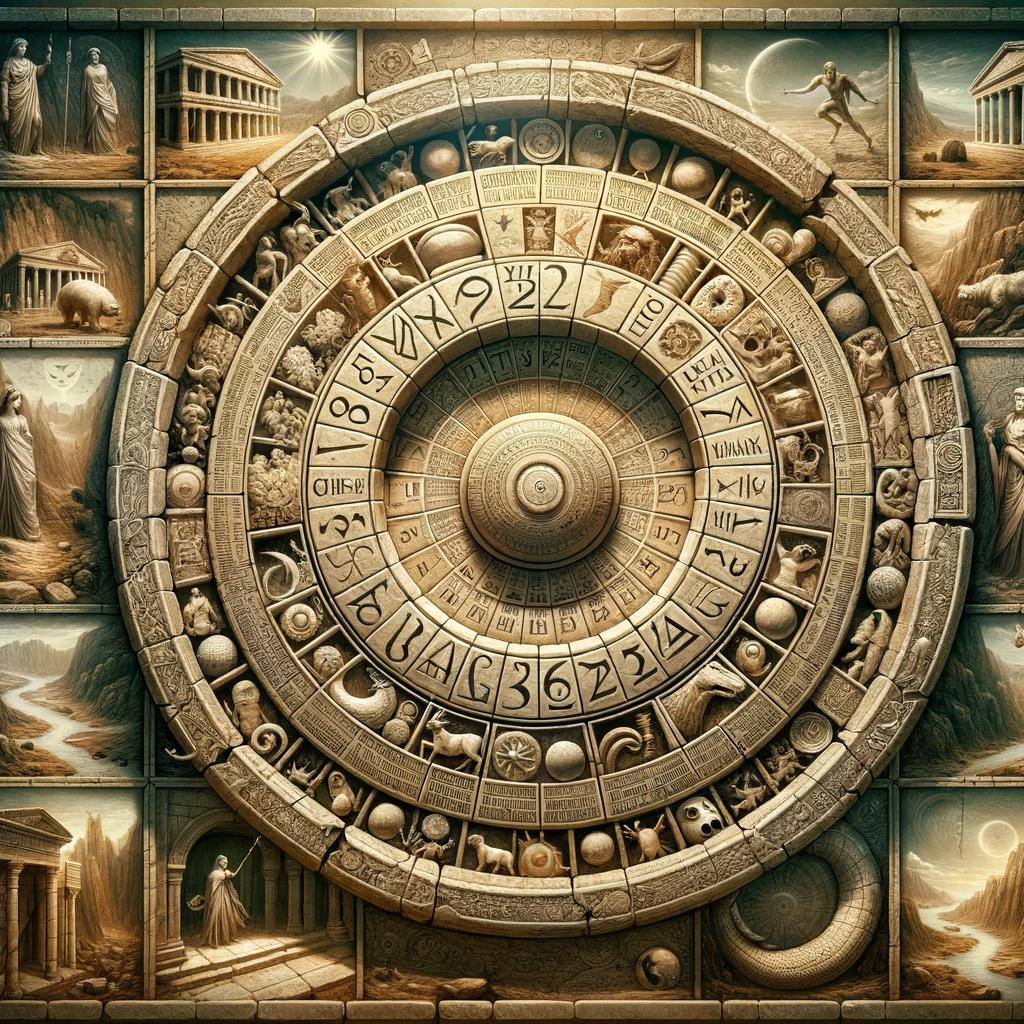Is Roman Mythology the Same as Greek?
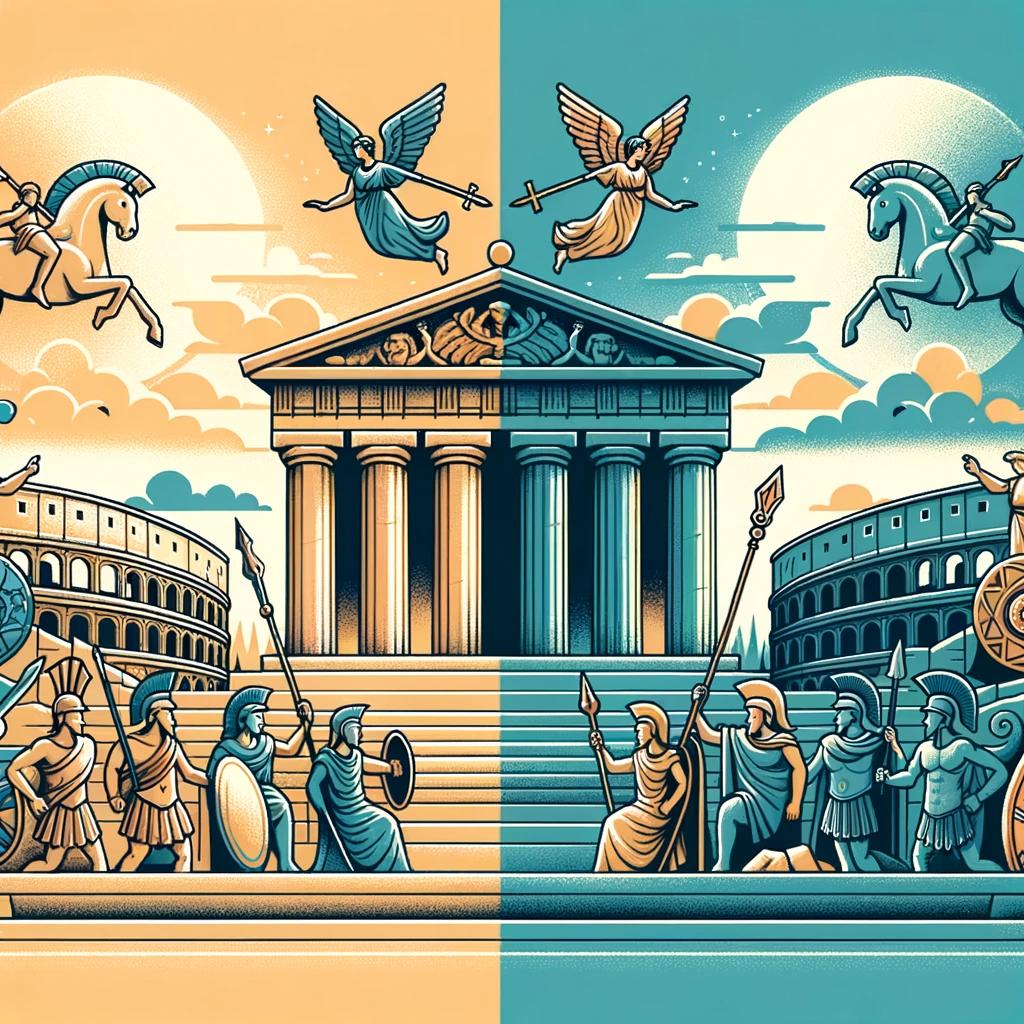
Roman mythology and Greek mythology have significant similarities and differences. This article provides a comparison between the two mythologies, exploring similarities and differences in the gods, myths, and pantheons.
It also delves into the roles of Greek and Roman gods, their traits, and their representation in literature. The interactions between gods and mortals, as well as their involvement in love, war, and heroic deeds, will also be examined.
Lastly, the article explores beliefs about the afterlife in both Greek and Roman mythology.
Comparison of Greek Gods and Roman Gods
The mythology of ancient Greece and Rome feature a rich pantheon of gods and goddesses, each with their own distinct characteristics and realms of influence. This section will explore the similarities and differences between the Greek and Roman gods, shedding light on their shared traits and unique attributes.
Similarities between Greek and Roman Gods
- The Greek and Roman pantheons share a number of gods and goddesses, although they may have different names or slight variations in their roles and attributes.
- Both mythologies depict a hierarchy of gods ruled by a powerful supreme deity.
- Many gods in both pantheons are associated with specific domains such as love, war, or wisdom.
- The gods in both mythologies often interacted with mortals, influencing their lives and playing key roles in epic tales.
- Both Greek and Roman gods were worshipped through rituals and ceremonies, with temples dedicated to their honor.
Differences between Greek and Roman Gods
- While Greek gods were seen as idealized human forms, Roman gods were often depicted as symbols or personifications of abstract concepts or objects.
- Greek gods had complex personalities and emotions, mirroring the human experience, while Roman gods were often less individualistic and more focused on external factors.
- There are variations in the specific roles and responsibilities of certain gods in each mythology, and some gods have no direct equivalents in the other pantheon.
- The Roman gods were often associated with state and civic affairs, reflecting the practical and political nature of Roman society.
- Additionally, the Romans placed great emphasis on their deeds and actions in securing a place in the afterlife, while the Greeks had a more laissez-faire attitude towards the afterlife.
Greek Mythology: Deities, Myths, and Pantheon
Greek mythology is a rich tapestry of deities, myths, and a complex pantheon that forms the foundation of ancient Greek culture and beliefs.
It is a vast collection of stories that explain the creation of the world, the origins of gods and mortals, and the interactions between them.
The Greek pantheon consists of a multitude of gods and goddesses, each with their own unique powers, domains, and personalities.
Among the most well-known deities are Zeus, the king of the gods, who reigns over thunder and lightning, and Athena, the goddess of wisdom and warfare. Other notable figures include Poseidon, god of the sea, Aphrodite, goddess of love and beauty, and Hades, ruler of the underworld.
These gods and goddesses play significant roles in various myths that portray their interactions with mortals and each other. Myths such as the story of Prometheus, who stole fire from the gods to give to humans, or the epic adventures of Heracles, symbolize the virtues, flaws, and struggles of human existence.
The pantheon of Greek gods is organized into different generations and families, with complex genealogies that highlight their relationships and connections. The Olympian gods, residing on Mount Olympus, hold the highest positions in the pantheon and have the most influence over mortal affairs.
However, there are also lesser deities, such as nymphs and satyrs, who inhabit forests, rivers, and other natural settings.
Throughout Greek mythology, the gods embody a range of human emotions, desires, and flaws.
They display both benevolent and vengeful traits, demonstrating a complex understanding of the human experience. The myths serve as cautionary tales, moral lessons, and explanations for natural phenomena.
In conclusion, Greek mythology is a rich and intricate web of deities, myths, and a complex pantheon that explores the origins of the world and the relationships between gods and mortals.
It provides a profound insight into ancient Greek beliefs, values, and the human condition.
Roman Mythology: Deities, Myths, and Pantheon
Roman mythology is a rich tapestry of deities, myths, and a vast pantheon. The Roman gods were heavily influenced by the Greek gods, but they also had their own unique characteristics and stories.
The Roman pantheon consisted of gods and goddesses who represented various aspects of life and nature. Some of the notable deities include:
- Jupiter: The king of gods, associated with thunder and lightning
- Neptune: The god of the sea
- Mars: The god of war
- Venus: The goddess of love and beauty
- Mercury: The messenger of the gods
- Minerva: The goddess of wisdom and strategic warfare
- Diana: The goddess of the hunt
- Bacchus: The god of wine and celebration
The myths of Roman mythology revolved around these deities, showcasing their powers, relationships, and interactions with mortals.
These myths often reflected the values and beliefs of Roman society, emphasizing concepts such as honor, duty, and piety.
One notable aspect of Roman mythology is the influence of Greek mythology.
Many Roman gods and goddesses were directly inspired by their Greek counterparts, although they sometimes had different names and slightly altered attributes. For example, Jupiter was equivalent to Zeus in Greek mythology, and Venus corresponded to Aphrodite.
The Roman myths, like the Greek myths, were passed down through oral tradition and later recorded in written works.
Some of the notable sources of Roman mythology include the works of Ovid, particularly his epic poem ‘Metamorphoses,’ which explores various mythological stories and transformations.
The Roman pantheon, much like the Greek pantheon, was vast and complex, with each deity having their own specific domain and attributes.
The worship of these gods was an important aspect of Roman religious life and involved rituals, sacrifices, and temples dedicated to individual deities.
Overall, the Roman mythology is a fascinating realm filled with captivating deities, compelling myths, and a pantheon that parallels the Greek gods.
Exploring the rich tapestry of Roman mythology allows us to gain insights into the beliefs, values, and cultural expressions of ancient Rome.
Greek Gods and Their Roles in Greek Mythology
In Greek mythology, the gods played integral roles in shaping the world and influencing various aspects of mortal life. These mighty deities were revered and worshipped for their exceptional powers and dominion over different domains.
Let’s explore some of the key Greek gods and their roles in Greek mythology:
- Zeus: Known as the king of the gods, Zeus presided over the heavens and ruled with supreme authority.
He was associated with thunder and lightning, and his role encompassed governance, justice, and maintaining order among both gods and mortals.
- Poseidon: Poseidon was the god of the sea and all its elements.
He controlled the waters, storms, and earthquakes, and was often depicted with his trident, which he used to cause or calm tempestuous waves.
- Hera: As the queen of the gods and Zeus’ wife, Hera held a significant role in Greek mythology.
She was the goddess of marriage and childbirth, and she represented fidelity and family. However, she was also known for her jealousy and vengeful nature, especially when it came to Zeus’s infidelities.
- Apollo: Apollo was the god of music, poetry, light, and healing.
He was also associated with prophecy, and his Oracle at Delphi was renowned for providing divine guidance and wisdom.
- Athena: Athena, the goddess of wisdom, was highly revered for her intellect, strategic prowess, and strategic warfare.
She was also the patroness of arts, crafts, and civilization.
- Aphrodite: Aphrodite was the goddess of love, beauty, and desires. She was often depicted as alluring and seductive, with the power to inspire passion and affection in mortals and gods alike.
- Hermes: Hermes, known as the messenger of the gods, was associated with communication, travel, and commerce.
He was also the patron of thieves and played a role in guiding souls to the afterlife.
These are just a few examples of the Greek gods and their respective roles in Greek mythology.
Each god had distinctive attributes, stories, and relationships with mortals and other gods. Their influence and interactions shaped the narratives and cultural beliefs of ancient Greek civilization.
Roman Gods and Their Roles in Roman Mythology
In Roman mythology, the gods played significant roles in shaping the lives and beliefs of the ancient Romans.
They were worshipped and revered for their influence over various aspects of human existence, from fertility and agriculture to war and protection.
The chief deity in Roman mythology was Jupiter (or Jove), who was considered the king of the gods and the god of the sky and thunder.
He was associated with the protection of the Roman state and its people. Jupiter’s wife, Juno, was the queen of the gods and the goddess of marriage and childbirth.
She was highly respected and worshipped by married women.
Another important god in Roman mythology was Mars, the god of war. Mars was often depicted as a masculine and fierce warrior, embodying the Roman ideal of strength and courage in battle.
The Romans believed that Mars protected their soldiers and ensured victory in conflicts.
Similarly, the goddess Venus held a significant role in Roman mythology as the goddess of love, beauty, and fertility.
She was seen as the protector of lovers and was associated with passion and desire. Her son, Cupid, represented love and was often portrayed as a mischievous child shooting arrows at mortals to make them fall in love.
Other notable Roman gods included Mercury, the messenger of the gods and the patron of commerce, travel, and eloquence; Neptune, the god of the sea and earthquakes; and Vulcan, the god of fire and craftsmanship.
Each god had specific roles and responsibilities, and their worship and reverence were integral to Roman society.
Roman mythology portrayed the gods as powerful entities that influenced various aspects of human life.
The Romans relied on these gods for protection, guidance, and blessings in their daily lives. Their mythology served to explain natural phenomena, human behavior, and the origins of the Roman people.
Greek and Roman Gods: Names and Associated Traits
Within the realms of Greek and Roman mythology, a notable aspect is the diverse pantheon of gods and goddesses, each with their own names and distinct characteristics. This section will explore the names and associated traits of the major Greek and Roman gods, shedding light on their attributes and domains of influence.
Greek Gods and Their Traits
The Greek gods exhibited a range of traits that reflected their roles and personalities. Here are some of the key Greek gods and their associated traits:
- Apollo: God of light, music, and prophecy
- Athena: Goddess of wisdom, strategic warfare, and crafts
- Hermes: God of travel, commerce, and communication
- Zeus: King of the gods, god of sky and thunder
- Poseidon: God of the sea, earthquakes, and horses
- Aphrodite: Goddess of love, beauty, and desire
These are just a few examples of the Greek gods and their associated traits.
Each god had a unique domain of influence and a distinct personality, contributing to the rich and complex tapestry of Greek mythology.
Roman Gods and Their Traits
In Roman mythology, the gods corresponded to the Greek gods, but with different names and sometimes slightly altered traits. Here are some of the major Roman gods and their associated traits:
- Mercury: God of commerce, travel, and financial gain
- Minerva: Goddess of wisdom, strategic warfare, and crafts
- Neptune: God of the sea, freshwater, and earthquakes
- Jupiter: King of the gods, god of the sky and thunder
- Venus: Goddess of love, beauty, and fertility
- Mars: God of war, violence, and agriculture
Similar to the Greek gods, the Roman gods had their unique areas of influence and traits that shaped their myths and stories.
By exploring the names and associated traits of the Greek and Roman gods, we can gain a deeper understanding of their significance in mythology and their impact on the cultures that revered them.
Comparing Greek and Roman Gods in Literature
Comparing Greek and Roman gods in literature allows us to explore the similarities and differences in how these deities were depicted and portrayed within their respective mythologies.
Greek Gods in Literature
Greek mythology is filled with captivating gods and goddesses that have been immortalized in various literary works.
These divine beings often served as central characters and drove the narratives in epic poems, tragedies, and other forms of Greek literature.
Epic Poems
Epics such as Homer’s “Iliad” and “Odyssey” feature some of the most well-known Greek gods. Zeus, Poseidon, Athena, and Apollo are just a few examples of powerful deities who play pivotal roles in shaping the events of these epic tales.
Tragedies
Tragedies by playwrights like Euripides and Sophocles often explored the intricate relationships between gods and mortals. These works showcased the divine influence on human fate, highlighting themes of hubris, vengeance, and the clash between mortals and immortals.
Homeric Hymns
The Homeric Hymns are a collection of poems dedicated to various gods. These hymns provide insights into the specific attributes, domains, and powers associated with different Greek deities.
Roman Gods in Literature
Although Roman mythology borrowed extensively from Greek mythology, it developed its own distinct literary tradition that highlighted the Roman gods and their unique characteristics.
“The Aeneid”
Virgil’s epic poem “The Aeneid” serves as one of the primary sources for Roman mythology. While following the hero Aeneas, the poem weaves together tales of Roman deities like Jupiter, Juno, Venus, and Mars, showcasing their involvement in the founding of Rome.
Ovid’s “Metamorphoses”
Ovid’s “Metamorphoses” explores the transformative power of the gods, with various Roman deities actively participating in the stories of mortals undergoing remarkable metamorphoses. This work showcases the larger Roman pantheon and their impact on the mortal realm.
Roman Playwrights
Playwrights like Seneca incorporated Roman gods into their dramas, often emphasizing the divine decree and the consequences of divine intervention in human affairs. These plays contributed to the understanding and portrayal of Roman gods in the literary landscape.
Conclusion
Comparing Greek and Roman gods in literature showcases how these divine beings influenced and shaped the narratives of ancient Greek and Roman societies. While both mythologies share a common foundation, their unique cultural perspectives influenced the portrayal and significance of the gods in their respective literary works.
Greek and Roman Gods in Relation to Mortals
The interactions between Greek gods and mortals played a significant role in Greek mythology. These interactions were often characterized by personal relationships, favoritism, and intervention in mortal affairs. Greek gods were known to take human form and interact directly with mortals, influencing their lives and even engaging in romantic relationships with them.
These interactions showcased the gods’ power, immortality, and the impact they had on mortal lives. The gods’ interactions with mortals were driven by their desires, whims, and personal agendas.
Interactions between Greek Gods and Mortals
1.Direct Involvement: Greek gods frequently involved themselves in the lives of mortals, whether for personal gain, punishment, or to fulfill their own desires. For example, Zeus, the king of the gods, was notorious for his love affairs with mortal women, resulting in the birth of numerous demigods.
These interactions often had far-reaching consequences, both for the mortals involved and the broader Greek mythological narrative.
2. Punishment and Reward: Greek gods were known to punish mortals for their transgressions or reward them for their virtuous acts.
For instance, the god Apollo punished King Midas with the gift of golden touch after the mortal’s hubris led him to desire wealth beyond measure. Conversely, gods like Athena and Poseidon rewarded loyal mortals with protection, wisdom, or favor in various forms.
3. Guidance and Inspiration: Greek gods also provided guidance and inspiration to mortals, often through divine manifestations or through whispered messages and dreams. The goddess Athena, for example, frequently offered advice and wisdom to mortal heroes like Odysseus and Perseus, helping them navigate challenges and achieve their goals.
Interactions between Roman Gods and Mortals
1. Respect and Devotion: Roman gods were highly revered by mortals, and their worship was an essential part of Roman society. Romans believed that by observing rituals and offering sacrifices, they could appease the gods and gain their favor.
This belief was integral to the daily lives of Romans, who sought protection, prosperity, and divine intervention through their devotion and piety.
2. Representations of Virtues: Roman gods often personified specific virtues, such as honesty, courage, and loyalty.
Mortals looked to these gods as examples to emulate and incorporated these virtues into their own lives. For instance, Mars, the Roman god of war, represented the virtue of courage, and Romans admired and aspired to display bravery in the face of adversity, much like their war god.
3. Political Influence: Roman gods played a crucial role in the politics and governance of Rome. Emperors and political leaders often used their association with specific gods to gain legitimacy and solidify their rule.
They would dedicate temples, hold ceremonies, and associate themselves with gods like Jupiter, Mars, or Minerva to project power and align themselves with divine authority.
The interactions between Greek and Roman gods and mortals highlight the complex interplay between the divine and mortal realms.
While Greek gods were more intimately involved in mortal affairs, Roman gods were revered and worshipped for their virtues and were believed to influence the destiny of Rome. These interactions demonstrate the unique nature of the relationship between gods and mortals in both Greek and Roman mythologies.
Greek and Roman Gods: Love, War, and Deeds
This section delves into the fascinating aspects of love, war, and heroic deeds in Greek and Roman mythology. The gods and goddesses of both pantheons played significant roles in shaping these themes.
Love and Relationship With Mortals
In Greek mythology, the gods and goddesses often interacted with mortals, engaging in romantic relationships and bestowing their affections upon them. These relationships resulted in famous love stories such as the affair between Zeus and mortal woman Alcmene, which led to the birth of the legendary hero Heracles.
Similarly, in Roman mythology, gods and mortals also engaged in amorous relationships.
The most well-known example is the love affair between the goddess Venus and the Trojan prince Anchises, which produced the hero Aeneas. These tales of love and desire between gods and mortals showcased the passion and complexity of relationships in both mythologies.
War and Conflict
War was a recurring theme in both Greek and Roman mythology, with gods strongly associated with different aspects of war and conflict. In Greek mythology, gods such as Ares, the god of war, and Athena, the goddess of wisdom and strategic warfare, played significant roles in battles and conflicts between mortals.
Similarly, in Roman mythology, the god Mars, the patron of war, was revered and considered a prominent figure in military endeavors. Roman soldiers sought his favor and protection before entering into battle.
The tales of these gods’ involvement in war reflected the importance and brutality of war in ancient societies.
Deeds and Deific Acts
The gods of both pantheons were known for their extraordinary abilities and the feats they performed. In Greek mythology, the achievements of the gods showcased their power and influence. For example, Zeus’s ability to hurl thunderbolts from the sky demonstrated his authority over the forces of nature.
In Roman mythology, the gods were also credited with impressive acts. For instance, Hercules, a demigod in Roman mythology, performed twelve labors to prove his strength and earn his place among the gods.
These heroic deeds showcased the incredible abilities and adventurous nature of the gods.
Through their love affairs, involvement in war, and impressive deeds, the gods and goddesses of Greek and Roman mythology left an indelible mark on the stories and legends of the ancient world.
Afterlife and Beliefs in Greek and Roman Mythology
Afterlife beliefs held a significant place in both Greek and Roman mythologies, shaping their views on the afterlife and the actions needed to secure a favorable position in the divine realm.
Greek Beliefs about Afterlife
Greeks believed in the existence of an afterlife, with the soul continuing its journey after death. Their beliefs varied, with different regions having different views. The most prominent concept was that of Hades, ruled by the god of the same name.
The souls of the deceased entered the realm of Hades, where they would be judged. Those who lived virtuous lives would be rewarded in the Elysian Fields, a paradise-like realm reserved for heroes and those favored by the gods.
On the other hand, those who were wicked or committed serious offenses would be condemned to Tartarus, a place of punishment and torment.
Roman Beliefs about Afterlife
Romans had a similar concept of an afterlife but with distinct differences. According to Roman mythology, souls would descend to the underworld and live in a realm called the Underworld or the realm of Pluto, the god of the underworld.
Here, the souls continued to exist but without the notion of punishment or reward as explicitly emphasized in Greek beliefs. Romans focused more on the concept of veneration of ancestors and ensuring a positive reputation and legacy on Earth, which would secure a favorable afterlife.
It was believed that through virtuous actions and achievements in life, individuals could eventually join the gods upon death and become divine themselves.
In conclusion, both Greek and Roman mythologies encompassed beliefs about the afterlife, although they differed in certain aspects.
Greek beliefs centered around a judgment-based system, with rewards and punishments in distinct realms, while Roman beliefs placed a greater emphasis on ensuring a positive reputation and achieving divinity through virtuous actions in life.
These diverging views reflected the cultural values and societal norms of ancient Greece and Rome.
.











